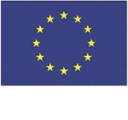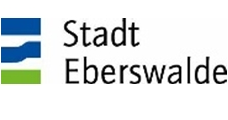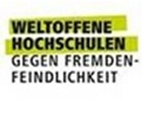Mission statement of the Eberswalde University for Sustainable Development
At the Eberswalde University for Sustainable Development, sustainability is lived and jointly shaped via teaching, research, third-mission activities, and the process of administering. The university develops application-oriented solutions that provide a sustainable link between society and the environment. Its mission statement is grounded in a systemic understanding of sustainability and serves as a point of orientation for self-determined thinking and acting for all university members. This mission statement is supplemented by the university's sustainability principles.
What do we stand for?
We are a democratic, cosmopolitan university that guarantees the freedom of science, research, and teaching. We rely on cooperation and solidarity and promote participation, appreciation, and diversity. Our core values are caring and being responsible for a sustainable world. These values are an expression of a holistic ethic that views the environment as an equally important part of our world. One of our central concerns is therefore the sustainable transformation of society. It is our deep conviction that ecological and social systems must remain intact, functional, and sustainable, and that they should be further developed within planetary boundaries in order to meet fundamental social requirements.
Our scientific work – which is committed to upholding our values and convictions – follows the principles of good scientific practice and is carried out within a culture of critically constructive discourse. In this way, we strive to reach findings that provide practical benefits for the common good and upon which we can reflect ethically. In so doing, we build on the rich academic tradition of Eberswalde and follow an approach to sustainability that is deeply rooted in the university’s history.
What do we do?
Our university is a driving force for sustainable development both in other universities and within society. Therefore, the principle of sustainability is firmly anchored in all of our courses of study. Using our diverse scientific expertise, we address social and professional challenges in terms of sustainable development and work in an application-oriented manner on forward-looking social, technological, and systemic sustainability innovations. To that end, we conduct disciplinary, interdisciplinary, and transdisciplinary research; we are internationally well connected; and we work in partnership with networks of science, business, politics, administration, and civil society. Through our institutional approach, we link teaching, research, and third-mission activities in close cooperation with the university administration and thereby develop practically viable model solutions for a sustainably designed world. In this innovative environment, our students acquire professional and creative competence in terms of education for sustainable development, and they – as graduates – are both empowered and prepared to take on the responsibility of working towards a better future. This is another reason why we actively promote social engagement in learning and teaching. By working together, we shape the university into a place where everyone feels comfortable. Our clear profile renders us locally, regionally, nationally, and internationally visible one the one hand and an attractive place to study and work on the other.
Where do we want to go?
We develop solutions for sustainable transformation in teaching and research, which makes our university an authority in the field of sustainability. Teachers, students, and researchers alike work together with practitioners to develop and test new ways of creating a sustainable world that is oriented towards the common good. In addition to consistency and efficiency, we focus on sufficiency strategies that enable natural resources to be used in an ecologically justifiable manner and to be distributed in the spirit of solidarity. We reflect self-critically on our own actions. We offer space for open discourse. Finally, we question how we as individuals, as a university, and as a society can live up to our responsibility for current and future generations as well as how we can act effectively.










